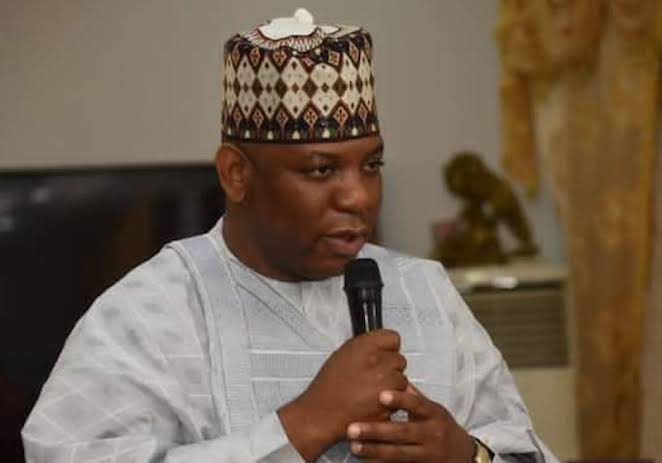The Nigerian Federal Government, under the leadership of President Bola Tinubu, has reaffirmed its commitment to reviving the Ajaokuta Steel Company Limited (ASCL) in Kogi State, a project that has remained largely dormant for over four decades despite its near completion in the 1990s. The Minister of Steel Development, Prince Shuaibu Abubakar Audu, announced on June 8, 2025, that the government is in advanced stages of operationalizing the steel plant, which is seen as pivotal to Nigeria’s industrialization and economic diversification. This ambitious initiative aligns with the administration’s “Renewed Hope Agenda,” which targets a $1 trillion GDP economy by fostering local production and reducing reliance on imported steel.
The Ajaokuta Steel Plant, established in the 1970s with Soviet assistance, was designed to be Nigeria’s industrial cornerstone, capable of producing 1.3 million tonnes of liquid steel annually in its first phase, with potential for expansion. Despite being 98% complete by 1994, the plant has faced challenges including mismanagement, political interference, funding shortages, and legal disputes over concession agreements, rendering it non-operational. The current administration has prioritized its revival, viewing it as a catalyst for job creation, infrastructure development, and economic self-sufficiency, given Nigeria’s annual steel import bill of over $4 billion.
A key component of the revival strategy involves strategic partnerships with international and local investors. In September 2024, the Federal Government signed a Memorandum of Understanding (MoU) with Tyazhpromexport (TPE), the original Russian builders of the plant, alongside their consortium partners, Novostal M and Proforce Manufacturing Limited, to rehabilitate, complete, and operate both ASCL and the National Iron Ore Mining Company (NIOMCO) in Itakpe. The government has also extended its search for investors to China, engaging with firms experienced in large-scale steel production to ensure the project’s technical and financial viability.
To facilitate private sector involvement, the government has initiated a comprehensive technical and financial audit of the Ajaokuta Steel Complex. The procurement process for the audit firm was finalized in late 2024, with auditing activities slated to commence before the year’s end, providing a clear roadmap for privatization. The decision to privatize ASCL and its captive iron ore mine in Itakpe aims to attract credible investors capable of injecting the necessary capital and expertise to operationalize the facility.
The revival of Ajaokuta is expected to have significant economic impacts, including the creation of over 15,000 direct and indirect jobs, which would provide a substantial boost to Kogi State and surrounding regions. The plant’s operationalization is projected to support industries such as construction, automotive, and manufacturing by supplying locally produced steel, thereby reducing Nigeria’s dependence on imports and conserving foreign exchange. Additionally, the project is anticipated to stimulate ancillary businesses, including logistics, power supply, and raw material processing, further driving economic growth.
Stakeholder support has been a critical factor in advancing the project. The Senate Adhoc Committee, chaired by Senator Adeniyi Adegbonmire, has pledged to provide legislative backing to ensure the plant’s revival, emphasizing its role in Nigeria’s industrial renaissance. Similarly, a coalition of over 100 civil society organizations has rallied behind the initiative, urging the government to prioritize transparency and accountability in the privatization process to avoid past pitfalls.
International development agencies, including the United Nations Industrial Development Organization (UNIDO) and the United Nations Development Programme (UNDP), have expressed interest in supporting the project through technical assistance and funding. These partnerships are expected to enhance the project’s credibility and attract further investment. The government has also engaged with local communities in Kogi State to address concerns about environmental impacts and ensure inclusive benefits from the plant’s operations.
The timeline for the revival is ambitious, with plans to commence revitalization activities in the first quarter of 2025, as confirmed by Natasha Akpoti-Uduaghan, Chair of the Senate Committee on Local Content. The initial phase will focus on rehabilitating existing infrastructure, including the plant’s rolling mills, power facilities, and rail lines, to enable partial production. Subsequent phases will involve expanding capacity and integrating modern technologies to meet global steel production standards.
Historical challenges, such as the failed 2003 concession to SOLGAS and the 2004-2008 agreement with Global Infrastructure Holdings Limited, have underscored the need for a robust and transparent approach. The current administration has committed to learning from these setbacks by implementing stringent oversight mechanisms and ensuring that only reputable investors with proven track records are selected. The minister has emphasized that the revival is a collective effort requiring collaboration among the government, private sector, technical partners, and local communities.
The Ajaokuta Steel Plant’s revival is not without its hurdles, including the need for significant capital investment, estimated at over $2 billion, and the resolution of outstanding legal and contractual issues. However, the government’s proactive steps, including the audit, international partnerships, and legislative support, signal a renewed determination to overcome these challenges. The project’s success could position Nigeria as a leading steel producer in Africa, contributing to the continent’s industrial development and economic integration.
In conclusion, the Federal Government’s efforts to revive the Ajaokuta Steel Plant represent a critical step toward achieving Nigeria’s industrial and economic aspirations. By leveraging strategic partnerships, privatization, and stakeholder collaboration, the administration aims to transform the long-dormant facility into a hub of industrial activity. As the project progresses into 2025, its success will depend on sustained commitment, transparency, and the ability to navigate the complex challenges that have hindered Ajaokuta’s potential for decades.




